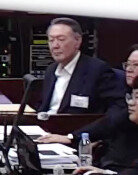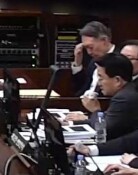[Editorial] Balanced National Development: A Failed Policy
[Editorial] Balanced National Development: A Failed Policy
Posted October. 08, 2007 08:05,
The second phase of the comprehensive balanced development project that the government is forcefully pushing forward with is likely to fail in the face of opposition from a number of local governments of some regions.
After the plan for categorizing regions according to the level of development was disclosed, Incheon and Gyeonggi, two of more developed regions, expressed their opposition, citing the plan as discriminatory. Following in the footsteps of those two regions, Busan and Ulsan also expressed their displeasure. The government said that it would adjust the plan only 15 days after its disclosure. But it is better to leave the project to the next administration than slightly change the plan at this juncture.
In the plan, the administration placed the Seoul and metropolitan areas at a disadvantage in order to encourage corporations in developed or growing regions to move to stagnated or underdeveloped regions. It is a result of political thinking which goes against economic logic. The administration intends to expand corporate tax benefits to appease the rising displeasure of the regions involved. But the plan could reduce tax revenues by more than the current estimate of one trillion won.
The plans vision for the Seoul metropolitan area is in line with President Roh Moo-hyuns usual argument that, Korea will become more competitive when Seoul becomes less crowded. With its advanced human resources and social infrastructure, Seoul should compete with other capitals, including Tokyo, Beijing, and Singapore. Companies in Tokyo or Beijing will hail the kind of balanced national development that undermines the competitiveness of companies in Seoul. More companies will channel their investment overseas if it became harder to build plants in near-Seoul area.
The plan did not go through a thorough discussion because it was so controversial. Japan admitted the ineffectiveness of its own balanced development project and gave it up in 2000 after implementing it for 30 years. We should minimize our versions trial and error rate before we follow suit.
The verdict has already come out that the administrations balanced development project failed. It is not a project that the soon-to-be-outgoing president should push ahead with. The administrations excessive implementation activity gives the impression that it wants to draw up a roadmap for the next administration on balanced national development and inter-Korean economic cooperation. But it is time for the administration to reflect on their mismanagement, not push forward with failed policies.
The National Assembly should disapprove of the revision bill of the balanced development act because the excessive measures stipulated in the bill could lead to unfortunate economic effects.




![[단독]김경 “1억원 줄때, 강선우도 함께 있었다” 자수서](https://dimg.donga.com/c/138/175/90/1/wps/NEWS/IMAGE/2026/01/14/133148772.5.jpg)


